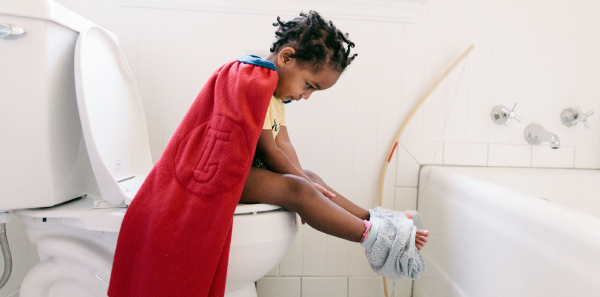
The best questions often stem from the inquisitive learner. As educators, we love, and are always humbled by, those moments when we get to say, “I don’t know.” For some of these questions, you may already know the answers. For others, you may never have thought to ask the question. For all, questions, comments, concerns, and critiques are encouraged. Welcome to the Kids Korner.
Explore This Issue
ACEP Now: Vol 40 – No 09 – September 2021In children, is there a particular duration of diarrhea that would suggest a bacterial etiology?
A 2006 prospective study by Klein et al evaluated 1,626 stool samples of children with diarrhea presenting to a pediatric emergency department over a three-year period.1 The authors evaluated clinical characteristics such as the number of stools, duration of diarrhea (in days), recent travel, fever, age, and presence of blood. They then evaluated whether these characteristics were associated with an increased likelihood of a positive bacterial diarrhea culture.
This study was performed in the United States. The median age of children enrolled was 1.3 years, and the median duration of diarrhea prior to presentation was three days. Bacterial pathogens were culture positive in 118 of 1,626 stool samples (7.3 percent), and factors significantly associated with a positive bacterial stool culture were travel outside the United States within 30 days (relative risk [RR] 2.8), blood in the stool (RR 7.4), or passing of more than 10 stools in the previous 24 hours (RR 1.1).
Interestingly, duration of diarrhea more than 10 days significantly decreased the likelihood of yielding a positive bacterial stool culture (odds ratio [OR] 0.3; 95 percent, confidence interval [CI] 0.1–0.9). Also, this study found that clinical physician judgment for the need for a stool culture demonstrated sensitivity and specificity of 76 percent and 65 percent, respectively. Physician gestalt was almost as predictive as the model developed by multivariate analysis.
A second prospective case-control study of 3,366 children in Africa and southeast Asia found a negative association between viral etiology and bloody diarrhea as well (OR 0.129; 95 percent CI, 0.096–0.173), suggesting that bloody stool is not typically associated with viral etiologies of diarrhea.2 Conversely, bloody stools were associated with a bacterial cause (P<0.0001). This study did not find a significant association between diarrhea duration and the likelihood of a bacterial etiology.
Conclusion
We were unable to find a particular duration of diarrhea that would suggest a bacterial etiology. Bloody stool and recent travel outside the United States seem to be the strongest predictors of a bacterial etiology of diarrhea.
Pages: 1 2 | Single Page







No Responses to “Is Pediatric Diarrhea Duration Correlated with Odds of Bacteria in Stool?”